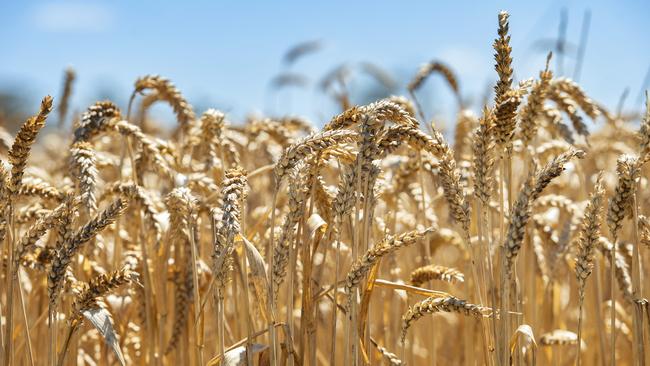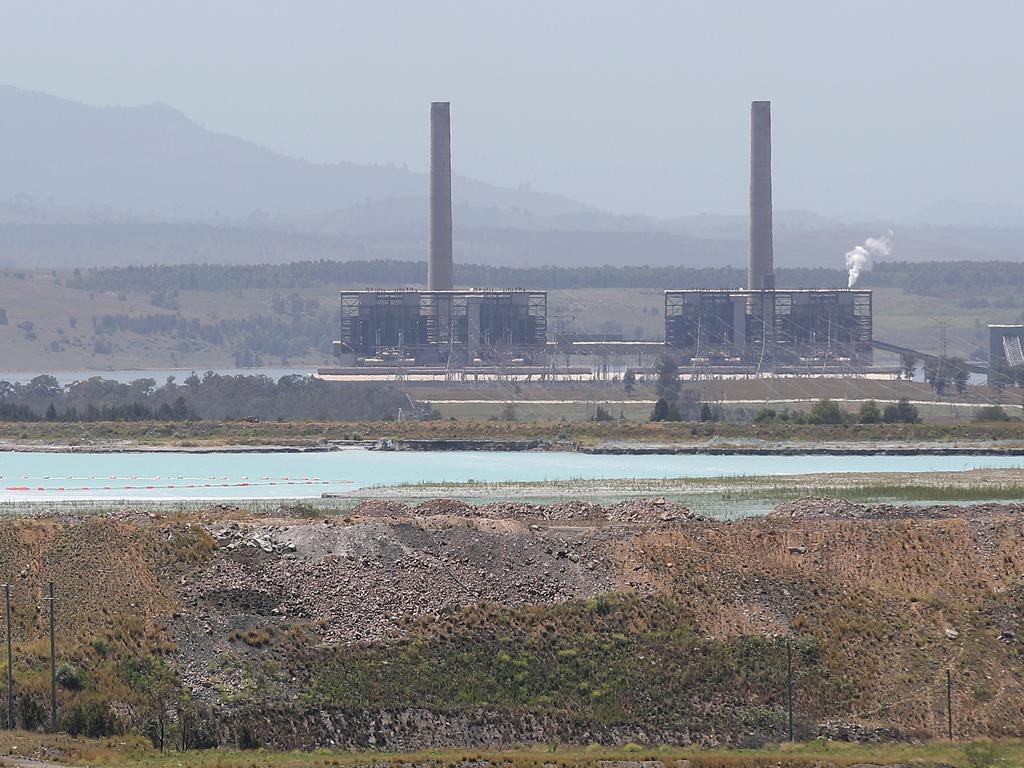China slashes Australian wheat imports to decade low
China is tightening its purchases of Australian wheat as it launches a fresh assault on Australian farm commodities.

China has slashed the amount of Australian wheat imports to a near decade low as Beijing ratchets up its attack on Australian farm commodities and threatens to disrupt international trade worth hundreds of millions of dollars a year.
China imported 880 tonnes of Australian wheat in November - the lowest since 2011 - according to customs data, as tensions between Beijing and Canberra show no signs of abating. Australia exports about $4.6bn worth of wheat a year globally, with China accounting for around 10 per cent of total international trade.
Beijing’s tightening on Australian wheat purchases comes amid a blockbuster crop for Australian farmers, with production forecast to more than double this season to around 31 million tonnes, according to the Australian Bureau of Agricultural and Resource Economics (ABARES).
China’s communist regime has already slapped punitive tariffs or banned a range of Australian products from barley, timber and beef to wine and seafood after Prime Minister Scott Morrison pushed for an inquiry into the origins of Covid-19 and Australia’s foreign interference legislation angered Beijing.
It comes as the world wheat price is forecast to surge 11 per cent this financial year, to an average of $US245 a tonne, reflecting a fall in production in some major exporting countries in 2020–21, dryness during the 2021–22 winter crop planting window in the US, the European Union and Russia, ABARES said in its December quarterly report.
Demand high
Meanwhile, high domestic grain prices are expected to result in China’s total wheat import demand being the highest in 25 years, at 8 million tonnes.
“This demand is likely to be met by wheat exports from the United States and the Black Sea region. Smaller exportable surpluses from these major exporters will provide Australia with an opportunity to meet demand in other markets,” ABARES said.
Australian wheat is highly sought after in Asian markets, with more than 30 per cent of Australian wheat exports used in Asian noodles thanks to its starch and protein quality. Indonesia is the biggest buyer of Australian wheat, with total exports worth about $739m a year, more than double the Chinese wheat trade, which is worth about $346m.
Other top Asian markets for Australian wheat include Philippines ($465m), Vietnam ($404m) and Korea ($361m).
Australian grain growers have been anticipating China to target wheat. But unlike barley - which China has historically bought 60-70 per cent of Australia’s crop - it hasn’t been a big market for Australian wheat, accounting for about 10 per cent of total wheat exports.
ABARES warned of continuing disruptions in Australia’s trade with China, “despite the economic benefits trade brings to both countries”, with the biggest hits to barley and wine.
“To date exports of barley and wine have been most affected. Australian barley has been diverted to other markets, and exports of high-value wines to China spiked in anticipation of the anti-dumping security deposits introduced in late November 2020.
“The introduction of anti-dumping security deposits is expected to significantly reduce wine exports to China. Australia may be able to divert a limited amount of wine to existing markets such as the United Kingdom and the United States, but a lack of access to the Chinese market will likely reduce production value and sales in 2020–21.”
Mystery bugs
Last week, China banned timber from NSW and Western Australia - halting its trade across all six Australian states, stating that some Chinese customs offices detected insects in shipments.
In a statement on China Custom’s website, it said “harmful insects” were detected in six customs branches, including Tianjin, Nanjing, Xiamen, Guangzhou, Shenzhen and Huangpu. China said they had notified their Australia counterparts and would inform Chinese importers.
Despite the Chinese crackdown on “harmful insects”, the Morrison government has continued to allow imports of Chinese bamboo - even after the Northern Territory’s Department of Primary Industries detected a bamboo borer, or dinoderus minutus, in Chinese products sold at Bunnings.
Bunnings’ Eden brand of bamboo screening was found to be infested with the pest known for destroying wooden furniture and other timber products in a serious biosecurity breach earlier this year.
In its December report, ABARES also warned of conflating geopolitical tensions with Chinese international trade policy introduced three years ago.
“In 2017 China reaffirmed a policy of increased openness to international markets in its No. 1 Central Document. It was understood that China would facilitate greater engagement with international markets through more rigorous application of trade law, biosecurity protocols and technical trade rules such as labelling.
“Application of these trade rules is existing Chinese Government policy and should not always be interpreted as an escalation of trade tensions.”
Still, NAB Group Economics associate director Phin Ziebell said the China trade tensions and rising Australian dollar presented the greatest threats to Australian agriculture commodities.
“The two greatest concerns at present are arguably the Australian dollar and China trade issues. The Australian dollar is currently sitting around 73 US cents. We see it at around 74 cents at year-end, gradually climbing to 80 cents by mid-2022,” Mr Ziebell said.
“This presents a headwind to local commodity prices. Australia’s trade relationship with China is under increasing strain, with some agricultural sectors now hit by tariffs or non-tariff barriers. This bears close watching.”
Mr Morrison promoted former diplomat, Dan Tehan, to Trade Minister earlier this month to lead Australia’s response to China’s aggressive targeting of key export markets as well as work to secure free-trade deals with Britain and the European Union next year.
“Dan brings strong credentials to this role as a former officer in the Department of Foreign Affairs and Trade, as well as a keen sense of the particular interests of regional Australia in an open, rules-based trading system,” Mr Morrison said when he announced his cabinet reshuffle.







To join the conversation, please log in. Don't have an account? Register
Join the conversation, you are commenting as Logout